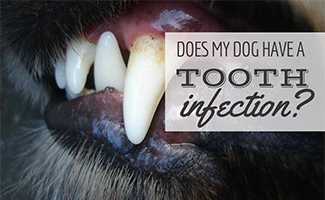Adenovirus In Dogs: Symptoms, Treatment, Prevention & More
When you purchase through links on our site, we may earn a commission. Here’s how it works.

Every responsible pet parent knows about the importance of keeping their canine companion’s vaccinations up to date. But what are they for? What diseases do they protect your dog against? One of the diseases covered by your dog’s annual vaccinations (also known as a booster or shot) is called canine adenovirus. Let’s find out more about canine adenovirus and how it causes hepatitis in dogs.
What Is Adenovirus In Dogs?
Canine adenovirus, also known as infectious canine hepatitis, is a viral infection that can cause severe inflammation of the liver and even permanent damage. There are two types of canine adenovirus, known as canine adenovirus type 1 (CAV-1) and canine adenovirus type 2 (CAV-2). With canine adenovirus type 1, the virus spreads easily between dogs, but thankfully, it is not a zoonotic disease and therefore poses no risk to humans.
How Do Dogs Get Canine Adenovirus?
Canine adenovirus is very contagious, especially among young or immunocompromised dogs, although all unvaccinated dogs are susceptible. The source of infection is bodily fluids from infected dogs, including urine and discharge from the eyes and nose. Adenovirus isn’t the only cause of canine hepatitis – other causes include various other viral and bacterial infections (including leptospirosis), parasites, toxins like blue-green algae, and tumors.
Adenovirus In Dogs – Symptoms
Dogs with hepatitis due to canine adenovirus usually show symptoms within five days of infection, although there can be a delay of up to two weeks. Minor symptoms can include a cough, cloudy eyes, and discharge from the eyes and nose. General symptoms include:
- Lethargy
- Reduced appetite
- Abdominal discomfort
- Jaundice (yellowish coloring in a dog’s eyes, gums, skin, and ears)
- Fever
In more severe cases, dogs may develop vomiting, diarrhea, and subsequent dehydration. Sadly, infectious canine hepatitis can be fatal.
Can Adenovirus In Dogs Be Treated?

Dog hepatitis treatment varies depending on the cause; however, for hepatitis caused by canine adenovirus, there is no specific treatment. Instead, treatment focuses on treating the symptoms and supporting the dog’s body while their immune system fights the virus.
If your dog has infectious canine hepatitis, your veterinarian will probably recommend putting them on a drip and keeping them in the hospital. This will mean the vet can keep them comfortable with pain relief, give anti-sickness medication, and give anti-inflammatories to lower their temperature. They may also give medications to reduce liver damage and help the bile flow more freely, and if a secondary bacterial infection is suspected, they might prescribe a course of antibiotics.
Pet insurance can be an excellent investment in your dog’s health by covering a large portion of vet bills for unexpected illnesses and accidents. However, it’s important to get a policy before your pup develops health problems. Otherwise, it’s considered a pre-existing condition and likely won’t be covered. See my colleague’s expert reviews of the best pet insurance providers to learn more.
How To Prevent Canine Adenovirus In Dogs
Canine adenovirus can cause fatal illness, but luckily, there is an adenovirus vaccine for dogs. With so many dogs now vaccinated, it is rare for veterinarians to see a case of infectious canine hepatitis. In fact, I have not come across a known infectious canine hepatitis case during my career, which is excellent news.
The adenovirus vaccination contains canine adenovirus type 2, but this immunity also protects against CAV-1. The vaccination is usually given as a combination vaccine, covering against parvovirus, canine distemper virus, leptospirosis, and sometimes parainfluenza. The vaccine should be given to puppies as a primary course of at least two injections, repeated after one year, and then given at least every three years. Learn more about the DHPP vaccine, which is also referred to as DAPP, DA2PP, or DAPPC.
Frequently Asked Questions
Pup parents have a lot of questions about infectious canine hepatitis. I’ve answered some of the most common. If you don’t see yours here, please ask us in our comments.
Can Dogs Get Hepatitis?
Hepatitis means inflammation of the liver, and just like humans, dogs can also be affected. While there are many different causes of canine hepatitis, the type caused by canine adenovirus is called infectious canine hepatitis.
Is Adenovirus In Dogs Contagious To Other Dogs?
Hepatitis is contagious, and other dogs are susceptible if they haven’t been vaccinated against canine adenovirus. Canine adenovirus is spread via urine and discharge from the eyes and nose of infected dogs.
What Other Vaccines Does My Dog Need?
Infectious canine hepatitis caused by adenovirus can be very serious, but thankfully, it is becoming less common now that more and more dogs are vaccinated. If you’re not sure whether your dog is up to date with their adenovirus vaccination, contact your veterinarian for reassurance or to arrange an appointment. Find out if pet insurance covers shots and which vaccinations puppies and dogs require, including a timeline for each.



